Miners' strikes: Maerdy's coal mine has gone but its heart remains
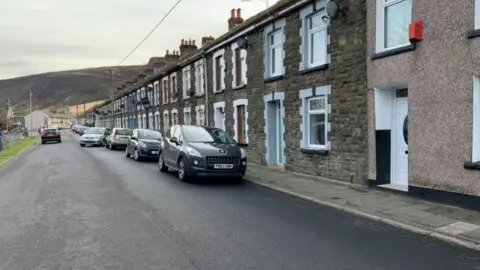 BBC
BBCOne is home to a world-famous fashion retailer, the other feels forgotten - this is the differing tale of two coal communities now the mines have gone.
More than 4,500 people work at Asos's distribution centre in Grimethorpe - more than the number who live in the former south Wales mining village of Maerdy.
How well they've responded to losing their mine, the old village heartbeat, depends on your barometer of success.
Is getting bigger, better? Or is it all about a tight-knit community spirit?
A quarter of the Welsh population live in former coalfield communities and near the head of the Rhondda Valley in Maerdy, there's a few shops, takeaways, a pub and one road in and one road out.
On a busy day, it can take almost two-and-a-half hours on public transport to get to the nearest big city, so locals say people have to move away from their community to get work.
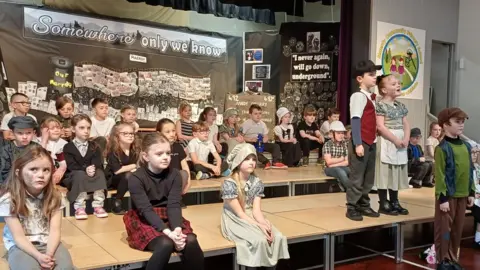
Roads, railway lines and more importantly industry - or jobs - never arrived after the pit shut in 1990, five years after miners went back to work following the miners' strike.
"Lots of things were promised, but not a lot of things came to the valley," said Dawn Wood, who was deputy head at Maerdy Primary for 45 years, including during the strike.
"That is a condemnation of any government, whether it's Labour, Conservative, every government. I cannot blame one more than the other."
Coal was at the heart of everything in Maerdy for more than 100 years - livelihoods, the social and sporting scene. The mine was the community.
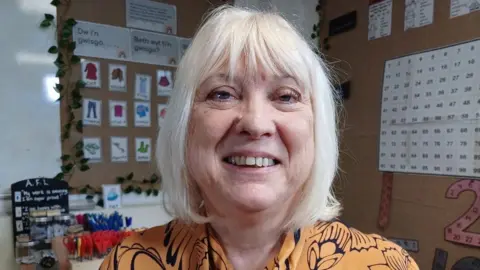
When miners marched back to work in 1985 after the strike, it was the beginning of the end for coal mining in the village.
The town walked in lockstep with the miners, accompanied by a brass band, but within five years the pit was gone for good - and Dawn, now in her 60s, said the village's fortunes had steadily declined.
"It is the lack of foresight, they promise things but they don't put it in," said Dawn.
"So as far as I'm concerned it is not the people that have let the valleys down, it is governments that have let the valleys down."
Dawn isn't alone. A new BBC survey found three in five people said closing the pits had a negative impact on their area - and almost three-quarters polled said they had seen little or no regeneration.
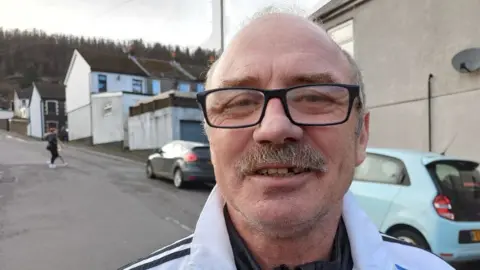
"Shops have closed, everybody had to go out of the valley to work... It's all gone, it's not the same," said lifelong Maerdy resident Phil Pugh.
There is also more deprivation, higher unemployment and poorer health, and new research estimates nearly 20% of people are out of work.
"We haven't got a train, they promised a new road that was supposed to come all the way up to Maerdy, but it only came up as far as Pontygwaith," said Gill Owen and Trina Coombs, who join the Knit and Natter group in Maerdy every Tuesday.
"You've got one road in and one road out. Big businesses will not come up here, because of the cost of their travelling time. If there's an accident, you can't get out.
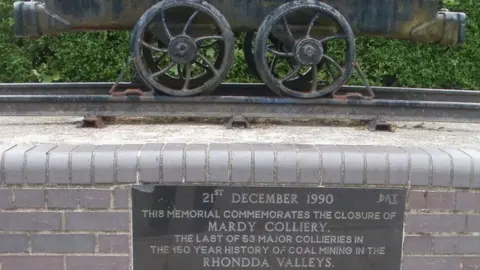 Jaggery | Geograph
Jaggery | Geograph"Last year the workmens' club in Tylorstown got burnt down. We were stuck for four days."
While the last four decades haven't been kind to Maerdy, some former coalfield communities have flourished.
Miners in the Yorkshire village Grimethorpe in south Yorkshire marched back to work around the same time as those in Maerdy, also accompanied by their own brass band made famous by the Ewan McGregor film Brassed Off.
Grimethorpe's pit shut in 1993 - and within a year the village near Barnsley was considered the poorest in the UK with half the workforce unemployed.
"Let's be blunt, the government walked away - it devastated that community and said goodbye... and in a sense everything just imploded," said Sir Stephen Houghton, head of the multi-agency Grimethorpe Regeneration Board.
"This wasn't miners losing a few jobs, they lost a whole way of life. Everything disappeared overnight. Society in the village started to break down. Crime and disorder went through the roof."
But a £100m injection built new roads, attracted industry including international fashion retailer Asos, and Grimethorpe - about halfway between Leeds and Sheffield - has grown.
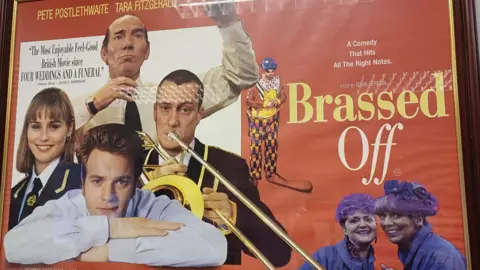
"We had to show the people of Grimethorpe that somebody cared about them and would work with them, and try and find funds, to try and turn the thing around," added Sir Stephen, now Barnsley council leader.
Grimethorpe grew - the fortunes of the village and those who lived there changed - but not everyone benefited.
"The new road opened up a lot of possibilities," said internationally-renowned dance artist Gary Clarke, who was born and bred in Grimethorpe.
"It's also brought a lot of new people into the village. I don't want to paint a picture like it's all a bed of roses. It's definitely not. The scars still run very deep in Grimethorpe.
"You can see the division between the old community and some of the newer people that come into the village. What brings people together in Grimethorpe is the legacy of the place.
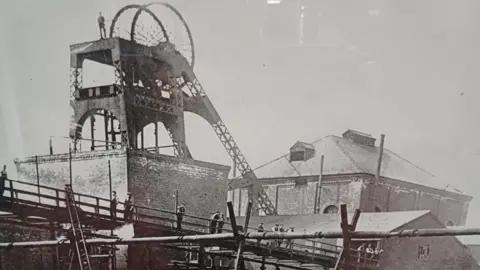
"A lot of the newer people don't necessarily know the history that Grimethorpe is built on and so with that I think they don't have that community spirit. The soul of Grimethorpe's changed dramatically, but we are trying our best to bring those two sides together."
It's the opposite back in Maerdy. While some may think they have nothing, others feel having each other is everything - a community spirit that many villages yearn for.
"Open your door, and there's always somebody who'd do you a favour", says Karen Knott, enjoying a weekly catch-up at Knit and Natter.
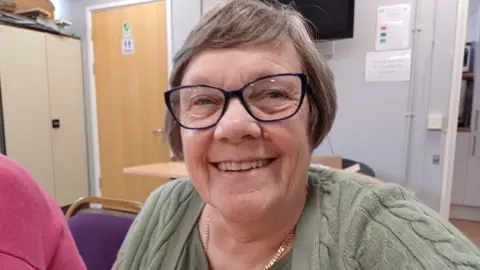
"If you were ill, they'd post you a letter, get you a pint of milk - they'd still do it now. My husband was putting an old bike in the car the other day, and somebody came along and asked if he needed any help."
The current head at the local school likens the current cost of living crisis to the strike in the 80s - and she feels it was community that got people through then, and it will be community that will get people through now.
"During the strike people stood together and helped each other," said Maerdy primary head Helen Gregory.

"Today with the financial climate that we're in, people need help as they did back then and we still have people standing side by side helping each other.
"If you go out and about in Maerdy people know each other, people care about each other. There are not many jobs in Maerdy - but we're proud to live here."

- MICHAEL SHEEN'S DIRECTORIAL DEBUT: An ordinary family caught up in extraordinary events
- MEN UP: Five ordinary Welshmen embark on a surprising medical trial

